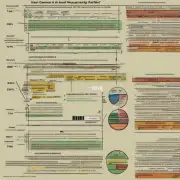如何衡量资产组合的风险?
钱松
没有戒不了的毒,仅有戒不了的爱。
Answer:
1. Risk-Adjusted Return (RAR)
- RAR measures the potential for loss in an investment portfolio while taking into account the level of risk involved.
- It is calculated by comparing the expected return of an investment portfolio to the risk-free rate (e.g., government bond yields).
- A higher RAR indicates a greater potential for generating a higher return but also a higher risk of losing money.
2. Sharpe Ratio
- The Sharpe ratio measures the excess return of an investment portfolio relative to a risk-free rate.
- It is calculated by dividing the portfolio's return by the standard deviation of its returns.
- A higher Sharpe ratio indicates that the portfolio has generated a higher return for the level of risk taken.
3. Sortino Ratio
- The Sortino ratio is a variation of the Sharpe ratio that is more robust to outliers.
- It is calculated by dividing the portfolio's return by the median of its returns.
- A higher Sortino ratio indicates that the portfolio has generated a higher return for the median level of risk taken.
4. Value at Risk (VaR)
- VaR is the maximum potential loss within a given probability level.
- It is calculated by multiplying the portfolio's value by the VaR factor, which is the probability of losing that amount of money within the given period.
5. Monte Carlo Simulation
- Monte Carlo simulation is a numerical method used to estimate the potential outcomes of an investment portfolio.
- It involves generating a large number of random scenarios and calculating the potential outcomes for each scenario.
- By analyzing the results, Monte Carlo simulation can provide insights into the potential range of returns and risks associated with an investment portfolio.
6. Correlation
- Correlation measures the degree to which two assets move together.
- A high correlation indicates that the assets tend to move in the same direction, while a low correlation indicates that they move independently.





